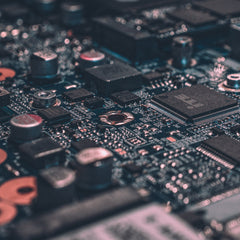If you work with embedded systems, off-road vehicles, industrial equipment, or any application running over a CAN bus, you've likely asked: how do I interpret what’s actually being sent over the wire? The answer lies in higher-layer protocols. This webinar breaks down the most widely used ones: J1939, CANopen, and UDS.
Presented by Torsten Gedenk of Emotas Embedded Communication GmbH, and hosted by Grid Connect, this session is a must-watch for systems integrators, controls engineers, and embedded developers who want a clearer picture of how these protocols function, overlap, and can even coexist on the same CAN bus.
You’ll walk away with a solid understanding of what each protocol offers, where it fits, and how to choose or support multiple layers in a single system. Plus practical insights you can apply immediately.
What You'll Learn
-
Why CAN by itself isn’t enough and what higher-layer protocols add
-
Key differences between J1939, CANopen, and UDS
-
How messages are structured and interpreted by each protocol
-
Address claiming, parameter grouping, and message timing in J1939
-
CANopen’s object dictionary, PDOs, and SDOs
-
How UDS uses ISO-TP to support large diagnostics messages
-
Common challenges in mixing protocols on the same bus - and how to manage them
-
Recommended tools and training resources to accelerate your development
Who Should Watch
This webinar is ideal for:
-
Embedded and controls engineers working in transportation, automation, industrial, or medical applications
-
Developers supporting ECUs, gateways, or diagnostics over CAN
-
Anyone seeking to mix or troubleshoot multiple CAN-based protocols in one network







